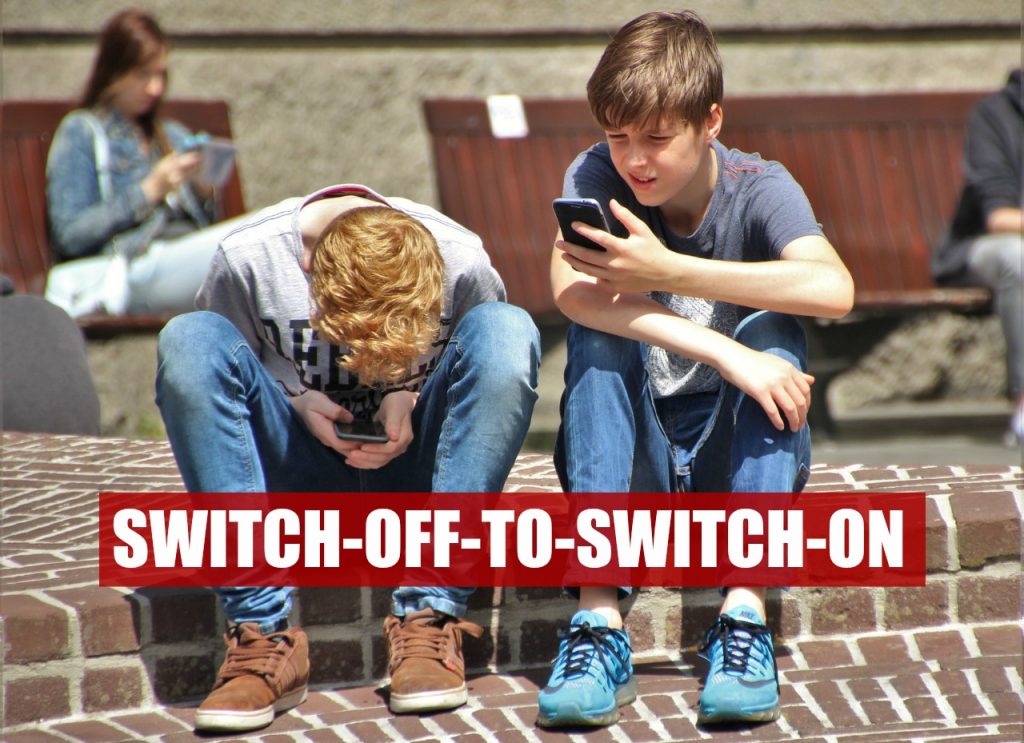Are you a smartphone addict?
Do you check your phone as soon as you get up in the morning? Do you carry it with you all the time? Do you regularly swipe through looking at Facebook, Line or other feeds?
If the answer is yes then chances are you are a smartphone addict.
As we know, smartphone ownership and usage has gone through the roof over the last decade or so.
STAYING CONNECTED
On the plus side, smartphones offer us a great communication tool, a chance to stay connected, a useful device for a range of applications.
If you are running a business online, chances are a large percentage of the engagement you get is through people using their phone to check out your advert or offer, follow your Facebook posts, and watch your videos or listen to your podcasts.
Online entrepreneurs recognize the need to make their outreach mobile-friendly.
NO USER MANUAL
But on the minus side, smartphones do not come with a warning, nor to they come with a proper user and training manual.
It’s like handing a pack of cigarettes and a lighter to a kid – only there is no nasty taste in the mouth when you switch on a mobile phone.
A smartphone can be just as addictive as cigarettes. Instead of nicotine you have the dopamine hits you get when you see somebody “liked” your Facebook post or commented on your cute video.
Dopamine, triggered in your brain, becomes your drug of choice.
Flip, flip, flip through posts on your phone and you get your dopamine hit.
It’s cool and everybody is doing it.
And few are issuing warnings in part because it’s an industry and most people have not taken on board the need to maintain a sensible relationship with their phone.
Back in the 1950s and 1960s, smoking was promoted as “good for your health”. Today, smartphone companies bombard you with seductive adverts of how their product will make you cool and you should not miss out.
THE UNSOCIAL SOCIAL DEVICE

Check out THIS VIDEO that warns that smartphones are making us stupid.
When thought leaders like Simon Sinek and Jim Kwik weigh in with warnings of the potential dangers of smartphone use, we should pay attention.
Memory expert and thought leader Kwik is sharp when it comes to learning and how people interact with the world. He questions whether smartphones make us stupid and he has a point.
Much of the time we delegate our thinking to our smartphones – a check to find some information, do some simple math, or use a simple click to communicate.
“Digital dementia” is what Kwik calls it. And most of the time, we fail to recognize it.
Smartphone use is proving unsocial – even though the user is connected digitally to others.
Check out a bunch of teenagers having a meal together. Right, I don’t even need to describe it, you know chatting has made way for swiping on their phones.
DEPRESSION & SUICIDE
Sinek is a thought leader who recently created a buzz with his controversial assessment of Millennials. (Check out that video HERE, one that went viral.)
He is frightened for young kids today who are addicted to their phones. He fears there will be an epidemic of depression and suicides going forward in part because of the corrosive addiction to smartphone use that while keeping people connected actually tends to distance people from real face-to-face relationships. Check out all the online bullying – delivered by smartphone – to get an inkling of how damaging this could be for a growing teenager.
Again, we do not need to go far to see evidence of this alienation in which young people get lost in this online world.
Most of the interaction is trivial – and with all the hype, fake news, and garbage online this daily dose can be mentally corrosive. Far from being empowering, it is the opposite.
TAKING BACK CONTROL
With all the buzz surrounding social media and smartphones – typically accompanied by photos of people smiling – it is important to recognize the dangers and be proactive in helping people – young and old – get to grips with sensible smartphone usage.
Now we have to stress that making such a move will be damn hard. Period.
We have to recognize that most people do not recognize how they are addicted and being dumbed down by that device they carry in their hand wherever they go.
One of the toughest challenges will be getting kids to ration their smartphone use.
If as a parent you have struggled to get your kid to stop playing video games you will understand this, only in the case of mobile phones the challenge you face is worse.
A smartphone easily slips into a pocket. It can be accessed anywhere including in bed, at school, and out with friends.
It’s chic – and when all your friends are addicted it is hard to have the self-discipline to put the phone away or switch it off.
SWITCH-OFF-TO-SWITCH-ON
None of us is immune when it comes to digital devices grabbing our attention.
Recognize the devices for what they offer us but understand their addictive quality.
Having the self-discipline to monitor and control your own smartphone use will be hard. Getting others to do the same will be even harder.
Those who understand that smartphones do not make you smart will need to be in the forefront of the movement to tackle this addiction.
This is serious.
Self-control or limiting the use of these devices by switching them off offers us all a chance to “switch on” and be more actively engaged with our friends, family, lives and society.
Take this message to heart – Switch-Off-To-Switch-On

